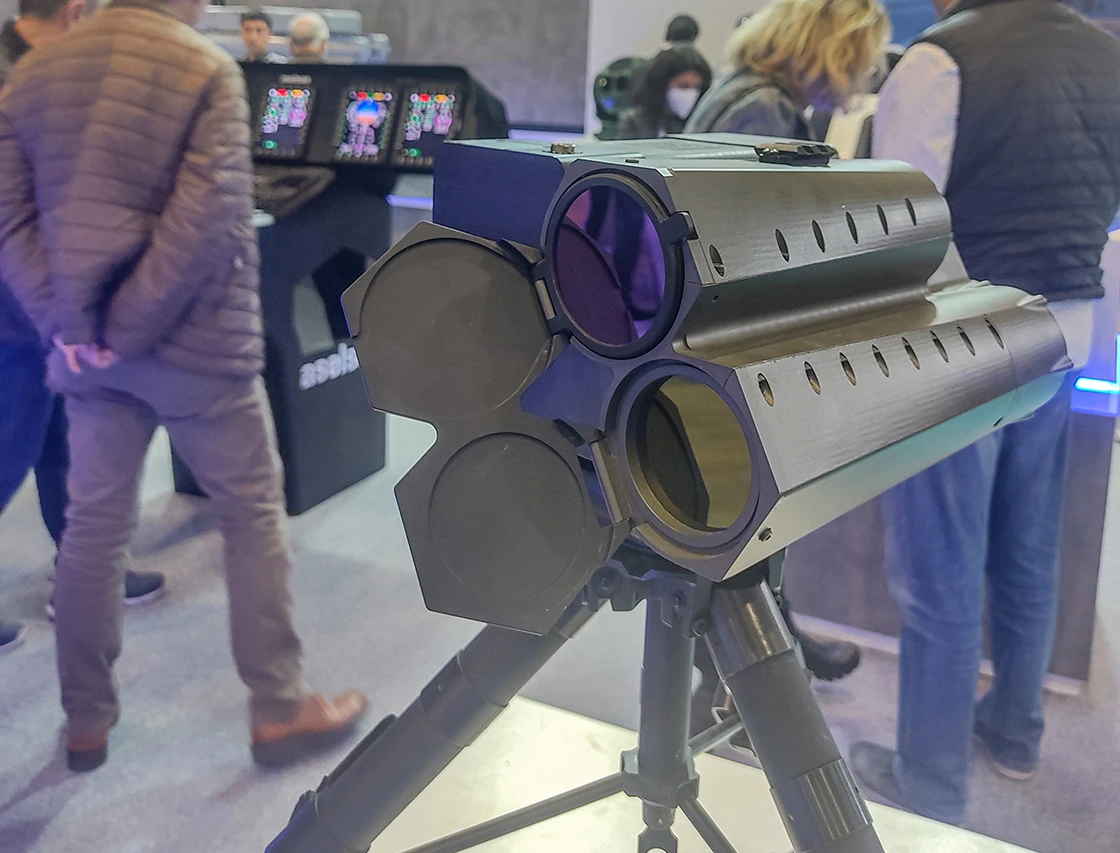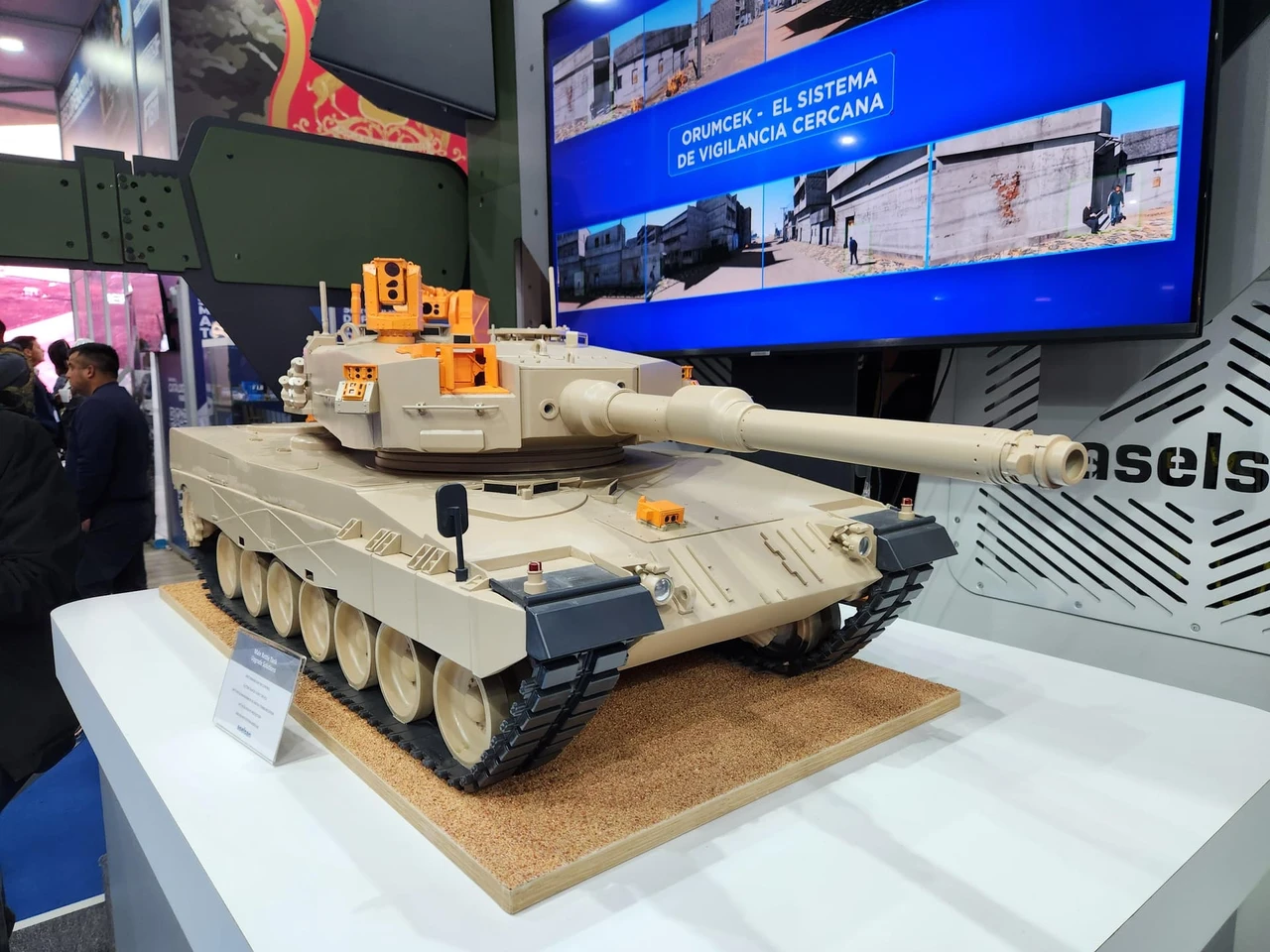Türkiye develops key component for Engerek laser target designator domestically
 Türkiye successfully develops a crucial capacitor charging power supply for the Engerek Laser Target Designator, boosting the nation's defense industry localization efforts (AA Photos)
Türkiye successfully develops a crucial capacitor charging power supply for the Engerek Laser Target Designator, boosting the nation's defense industry localization efforts (AA Photos)
The capacitor charging power supply, crucial for effectively deploying laser-guided munitions using the Engerek Laser Target Designator, has been domestically developed, replacing a component previously sourced from abroad with difficulty.

Operating within Technopark Ankara, Arti Industrial Electronics specializes in the series production, technical support, repair, and maintenance of custom designs for defense and industrial electronic systems. Arti contributes significantly to localization projects within the defense industry, leveraging these capabilities.
Asli Busra Demirbas, Production and Technical Service Manager explained to an Anadolu Agency (AA) correspondent that she has held this position for over a decade, and the company, established in 1995, has been producing R&D-based power electronics solutions.
Demirbas detailed their active roles in power distribution units, battery management systems, power electronics, printed circuit board design, schematic design, software design, and mechanical design, all of which are produced in-house.
Demirbas emphasized their eagerness to develop localization projects and products that enhance the country’s welfare, supported by a team of over 40 personnel. She highlighted the importance of this mindset, particularly among subcontractors in the defense industry.
“All of us are doing something for our country and nation. Recently, we worked on a product from Aselsan. Under the scope of localization efforts, it was evaluated as an alternative in case foreign sources of a previously imported product were depleted.
After completing the designs for this product, the production, including electronic board assembly, electronic board testing, and mechanical assembly, was carried out in our production department. Since it is a localized product, design activities were conducted considering the production line’s intensity. To enhance and accelerate our serial production, we established a test system, boosting our serial production capabilities,” Demirbas stated.
Following two prototypes, eight units have been delivered, with plans to add 30 more in the coming months and achieve 125 deliveries by 2025.
Advanced solution with new technologies
Selim Enes Yolalan, a Design and R&D Engineer, mentioned that a unit proposal for localization was made in March 2022, acknowledging the need for this product. Previously sourced from a US-based company, procurement challenges because of certain embargoes created an opportunity for localization.
“We conducted our necessary work following the received proposal and reached the acceptance stage. We then began preparations for prototype production with preliminary designs. We required an output voltage between 775 and 1000 volts from an input voltage range of 18-33 volts within a significantly short duration of 42 milliseconds. Initially, we used components we were unfamiliar with, leveraging our experience in power electronics to gain new insights. By examining similar products abroad, we incorporated new features and technologies.
Consequently, we achieved a nominal voltage duration of 26 milliseconds, which is nearly 50% faster than our foreign counterparts,” Yolalan explained.
The solution they developed serves as a capacitor charging power supply in Aselsan’s Engerek system, essential for firing laser-guided munitions, which require an operator to command the laser in the field. This power supply is crucial for firing the laser at 1000 volts, ensuring the munitions hit their targets.
Higher performance, lower cost
Yolalan noted that they developed a solution significantly smaller in volume compared to the equivalent product, although they did not reduce the size since it is used in an existing system.
“The internal temperature management of the mechanics was comfortable, so we had no temperature issues. We achieved a much better charge time, allowing it to be used in different designs. Our localized product charges in a blink of an eye, nearly 50% faster,” he stated.
Emphasizing that one of the main goals of localization is to achieve high added value, Yolalan pointed out that the product is delivered to the end-user domestically at more affordable prices, providing about 60% cost savings.
Regarding their future goals, Yolalan shared: “This is a product we developed for a specific platform. We aim to refine it with better technology and integrate it into different platforms. Currently, it is a mechanically assembled product with energy transfer via connectors. We plan to develop it into a module that can be soldered onto a PCB-type board.”
“We believe this will provide significant contributions as a shelf product for our country. We think such localization efforts should always play an active role in our country, extending beyond embargoes to include similar studies on currently imported equivalent products, thus bringing new added value to our nation.”



